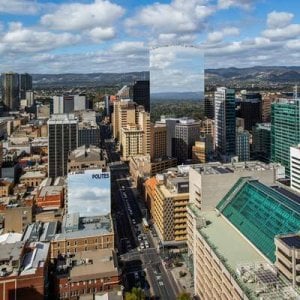'Absolute madness': Can this city-wide speed limit proposal slow locals down?
By
Danielle F.
- Replies 71
As the debate over road safety versus driver convenience revs up, a controversial proposal recently sparked outrage and concern among motorists.
The suggestion of imposing a blanket speed limit across all streets received a chorus of disapproval, with some even calling it 'absolute madness'.
The Adelaide City Council proposed a speed limit of 30 km/h, which has been under review for over two years.
The proposed speed limit should make Adelaide's city roads safer for both drivers and pedestrians.
The proposal had three options:
Councillor Henry Davis did not mince his words when he condemned the idea.
'To my mind, this is absolute madness; you would shut down the city if that were the case,' Councillor Davis said in an interview.
'It's madness. I don't even know why we were sitting in a council meeting for about an hour and a half considering this as a viable option.'
The proposal also aimed to encourage 'riding in' with others, minimising car usage in the long run.
However, Davis argued that the slower traffic could have the opposite effect.
In the face of backlash, Adelaide Lord Mayor Jane Lomax-Smith reminded the public that the proposal was still in its early stages.
She highlighted the balance between safety and convenience.
'On one side, if you go to the road accident research people, they will tell you if you're hit as a pedestrian at 50 km/h, you've got a 90 per cent chance of dying,' Lord Mayor Smith said.
'Whereas if you're hit at 30 km/h, you've got a 10 per cent chance of dying. The other side of the argument is people's convenience and how easy it is to get around.'
With all this in mind, Lord Mayor Smith said that the proposal still has a 'long way to go'.
The proposal came in at a time when Australia started grappling with preventable road deaths.
As part of the National Road Safety Standards Agreement signed in 2021, Australia should halve road deaths by 2030.
However, the country saw a 17.4 per cent increase in the national road toll.
About 1,288 people have died on Australian roads during the past year, with no state or territory on track to meet the targets.
'The road toll is clearly a tragedy,' National Roads and Motorists' Association (NRMA) spokesman Peter Khoury lamented.
The debate over the proposed speed limit was just part of a larger conversation about road safety.
It raised critical questions about how cities could balance efficient transportation with the importance of protecting lives.

We want to hear from you. What are your thoughts on the proposed speed limit changes in Adelaide? Would these measures improve safety, or would it create more problems? Share your thoughts and opinions with us in the comments section below.
The suggestion of imposing a blanket speed limit across all streets received a chorus of disapproval, with some even calling it 'absolute madness'.
The Adelaide City Council proposed a speed limit of 30 km/h, which has been under review for over two years.
The proposed speed limit should make Adelaide's city roads safer for both drivers and pedestrians.
The proposal had three options:
- A citywide 30 km/h limit
- A 40 km/h limit for most roads
- A mix of both with major arterial roads staying at 50km/h.
Councillor Henry Davis did not mince his words when he condemned the idea.
'To my mind, this is absolute madness; you would shut down the city if that were the case,' Councillor Davis said in an interview.
'It's madness. I don't even know why we were sitting in a council meeting for about an hour and a half considering this as a viable option.'
The proposal also aimed to encourage 'riding in' with others, minimising car usage in the long run.
However, Davis argued that the slower traffic could have the opposite effect.
In the face of backlash, Adelaide Lord Mayor Jane Lomax-Smith reminded the public that the proposal was still in its early stages.
She highlighted the balance between safety and convenience.
'On one side, if you go to the road accident research people, they will tell you if you're hit as a pedestrian at 50 km/h, you've got a 90 per cent chance of dying,' Lord Mayor Smith said.
'Whereas if you're hit at 30 km/h, you've got a 10 per cent chance of dying. The other side of the argument is people's convenience and how easy it is to get around.'
With all this in mind, Lord Mayor Smith said that the proposal still has a 'long way to go'.
The proposal came in at a time when Australia started grappling with preventable road deaths.
As part of the National Road Safety Standards Agreement signed in 2021, Australia should halve road deaths by 2030.
However, the country saw a 17.4 per cent increase in the national road toll.
About 1,288 people have died on Australian roads during the past year, with no state or territory on track to meet the targets.
'The road toll is clearly a tragedy,' National Roads and Motorists' Association (NRMA) spokesman Peter Khoury lamented.
The debate over the proposed speed limit was just part of a larger conversation about road safety.
It raised critical questions about how cities could balance efficient transportation with the importance of protecting lives.
Key Takeaways
- Adelaide City Council proposed several speed limits to be applied across the city.
- The proposal received significant backlash, with a councillor criticising it as 'absolute madness' that could stifle the city's daily operations.
- Lord Mayor Jane Lomax-Smith reminded locals that the proposal was still in the early stages and still has a long way to go.
- The proposal came after the national concern over road deaths, as road deaths have increased over the past year.








